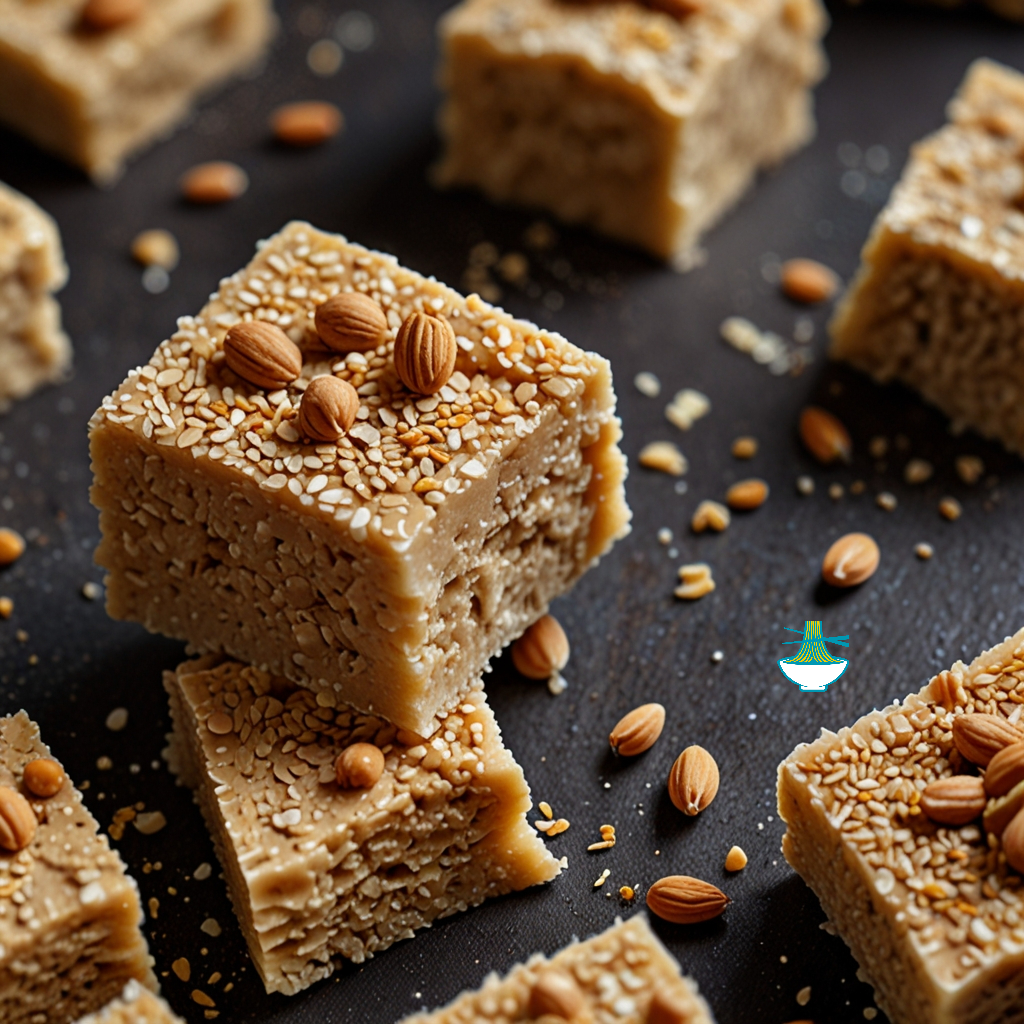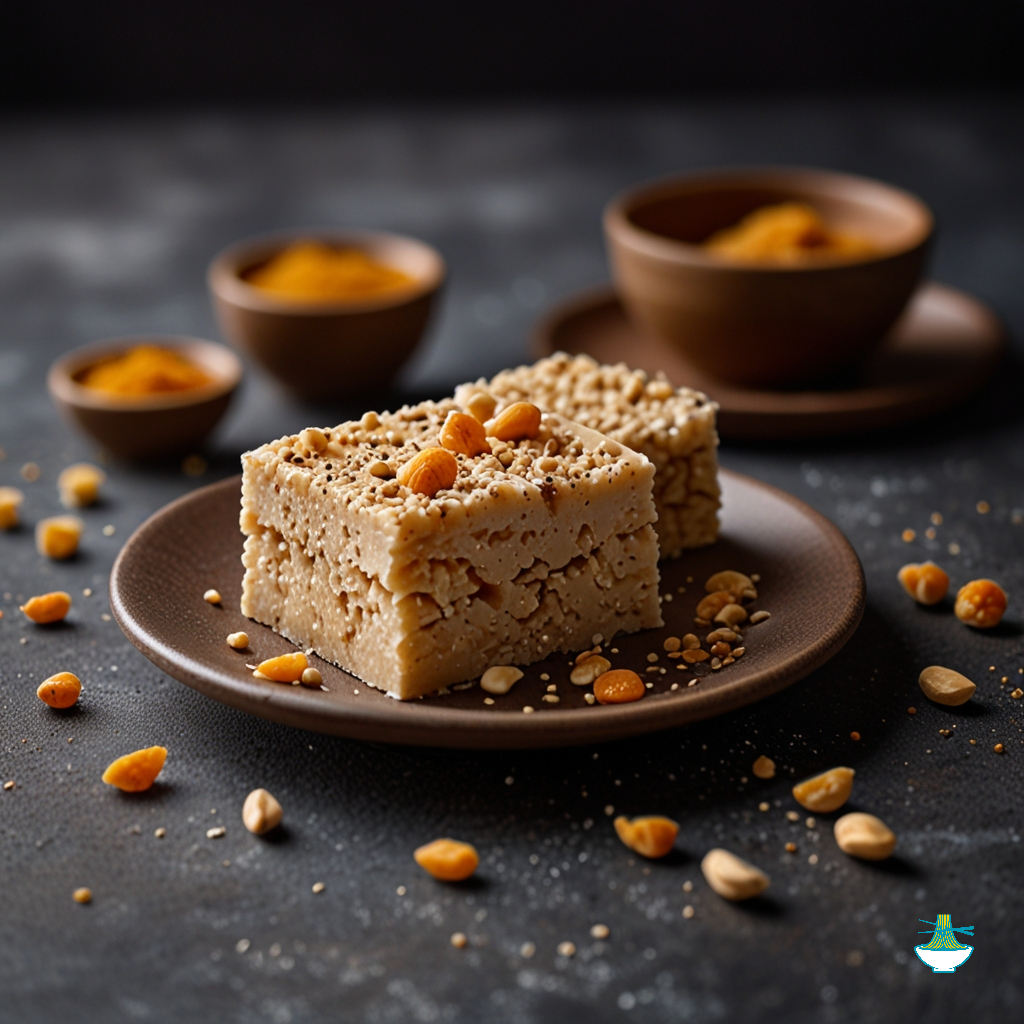Halva is a beloved sweet treat enjoyed across various cultures, known for its rich flavor and melt-in-your-mouth texture. This dessert typically consists of simple ingredients like flour, butter, sugar, and often includes nuts or spices for added depth of flavor. 
The origins of halva can be traced back to the Middle East, where it has been enjoyed for centuries. Over time, it spread to different parts of the world, with each region adding its own unique twist to the recipe. Today, halva remains a popular dessert, cherished for its simplicity and versatility in flavors. Whether enjoyed as a snack or served as a special treat during celebrations, halva continues to delight taste buds worldwide.
Ingredients:
- 1 cup flour
- 1/2 cup unsalted butter
- 1/2 cup sugar
- Optional: nuts or spices for flavoring

Method:
1. Heat butter in a pan over medium heat until melted.
2. Add flour to the melted butter and cook, stirring constantly, until it turns golden brown and fragrant.
3. Reduce heat to low and add sugar to the mixture, stirring until fully combined and the sugar is dissolved.
4. If desired, mix in nuts or spices for added flavor.
5. Transfer the mixture to a greased dish or mold, pressing it down evenly.
6. Allow the halva to cool and set for at least an hour before slicing and serving.
Nutrition Value:
1. 1 cup flour:
- Calories: Approximately 455 kcal
- Carbohydrates: Around 95 grams
- Protein: Roughly 13 grams
- Fat: Less than 2 grams
- Sodium: Minimal
- Cholesterol: Zero
- Vitamins: Contains various B vitamins, including folate and niacin
- Minerals: Provides iron, magnesium, and selenium
- Nutritional benefit: Flour serves as the base ingredient, providing carbohydrates for energy and some protein. It also contains essential vitamins and minerals, particularly if using whole wheat flour, which adds fiber and additional nutrients.
2. 1/2 cup unsalted butter:
- Calories: About 813 kcal
- Carbohydrates: Negligible
- Protein: Negligible
- Fat: Approximately 92 grams
- Sodium: Minimal
- Cholesterol: Around 244 mg
- Vitamins: Contains vitamins A, E, and small amounts of vitamin D and K
- Minerals: Provides small amounts of calcium
- Nutritional benefit: Butter adds richness and flavor to the halva. While it's high in saturated fat and calories, it also contains fat-soluble vitamins like A and E. Moderation is key due to its saturated fat content.
3. 1/2 cup sugar:
- Calories: Roughly 387 kcal
- Carbohydrates: About 100 grams
- Protein: Negligible
- Fat: Negligible
- Sodium: Minimal
- Cholesterol: Zero
- Vitamins: No significant vitamins
- Minerals: No significant minerals
- Nutritional benefit: Sugar adds sweetness to the halva but doesn't provide much in terms of vitamins or minerals. It primarily contributes to the calorie content and carbohydrate load of the dessert.
4. Optional: nuts or spices for flavoring:
- Nutritional content varies depending on the type and quantity of nuts or spices used.
- Nuts: Provide healthy fats, protein, fiber, vitamins (such as vitamin E), and minerals (like magnesium and potassium).
- Spices: Can offer various health benefits depending on the type, such as anti-inflammatory properties (e.g., cinnamon) or antioxidant effects (e.g., cardamom).
- Nutritional benefit: Adding nuts or spices not only enhances the flavor but also boosts the nutritional value of the halva, providing additional nutrients and potential health benefits.
These nutritional components and their benefits should be considered when preparing and consuming halva, helping to create a balanced and informed approach to enjoying this sweet treat.


Comments